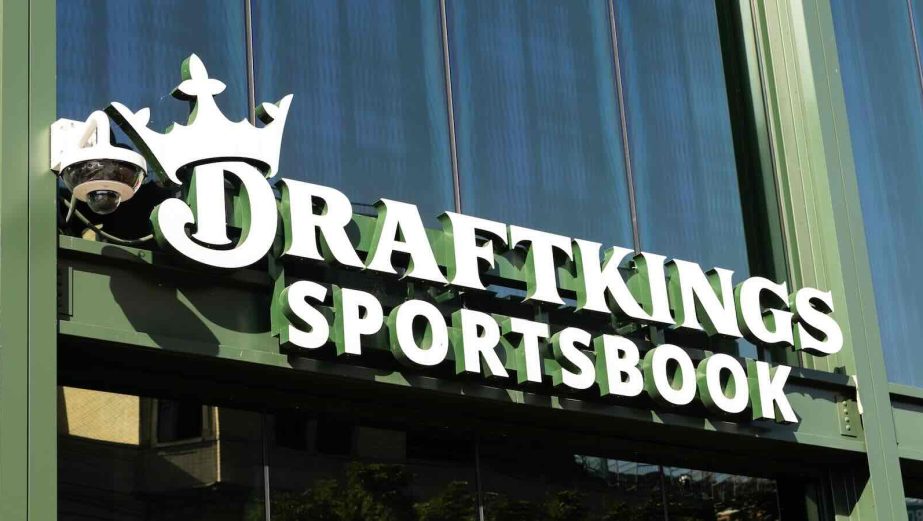DraftKings CEO Jason Robins said Tuesday, “I just don’t see a world” where customers choose prediction markets over sportsbooks in states where both are legal.
Speaking as part of the Global Gaming Expo (G2E) keynote — titled “Inside the C-Suite: Gaming’s Future in Focus on Stage” — Robins remained bullish about the ability of his own business to compete with companies like Kalshi and Polymarket, even as Wall Street appeared to view things differently.
Robins said at the conference in Las Vegas that prediction markets will prove valuable in states where sports betting is not legal — such as California and Texas — but in the rest of the country, he believes customers would still pick DraftKings over Kalshi.
“In a state with legal sports betting it is apples and oranges,” Robins said. “The product of the sportsbook and what it’s able to do is so much stronger than the product of a prediction market.
“I just don’t see a world where in a state that has both [prediction markets and sports betting] it’s not clear to the customer that the sportsbook is just a vastly stronger experience.
“I’m not trying to be dismissive but I don’t really see that. I don’t.”
Different in states without legal betting
Robins noted, however, that close to half of the U.S. population still does not have access to regulated online sportsbooks. For those people, he said prediction markets are going to have a much clearer path to success.
“There’s still a lot of places in the U.S. where people cannot access our product, and I think there’s a place there,” he said.
But in those states, he added that the rise of prediction markets could be a catalyst to legalize sports betting, as it becomes clear that residents are betting on sports regardless of state law.
In Robins’ view, the challenge of ensuring that there is enough liquidity for markets outside of straight bets on the largest games will hold back prediction markets when it comes to competing with sportsbooks. He also brought up the subject of limiting bettors, which he noted doesn’t apply in the same way to exchanges.
“The products will improve, but the nature of the way they’re designed — there’s liquidity pools, market makers — it’s not the same as going into a sportsbook and saying, ‘I want to bet on this, this, and this,’ or ‘I want to parlay these bets.’
“And the extent to which you can control who is betting is part of it too.”
When asked whether he believed sports event contracts should be regulated by states or banned, Robins declined to answer.
Flutter’s Jackson expresses similar sentiment
Robins’ rival sportsbook boss — Peter Jackson, CEO of Flutter Entertainment, which owns FanDuel — also questioned whether prediction markets could truly offer everything sportsbooks can in the same way, but was not as strong in his words.
He pointed to Flutter’s experience running the Betfair Exchange in the UK, which as a betting exchange features most of the same characteristics as a prediction market. Betfair holds only a low single-digit percentage share of the UK market, with observers noting its struggles in offering competitive parlay-like products and bonuses let it fall behind sportsbooks.
Kalshi offered its first same-game parlays last week, a move that contributed to massive declines in the price of both DraftKings’ and Flutter’s shares. So far, volume on the parlay products has been low compared to straight bets, and prices have been similar to those offered by sportsbooks, though volume is rising quickly.
“You can’t offer real generosity on these exchanges, because you’re sat in the middle,” Jackson said. “And consumers love generosity.
“And it is very difficult to find liquidity in all the different permutations you can have within the parlay product, and it’s more difficult if you have to put up capital behind every bet.”
Unlike DraftKings, Flutter has already announced its plans to get involved in prediction markets, via a partnership with CFTC-registered commodities giant CME. In a podcast episode released last week, CME CEO Terry Duffy revealed that the new product — named FanDuel Markets — will include markets on the price of indices like the S&P 500 or the price of gold that settle after an hour. The offering will not include sports, at least for now.
Jackson said he and the CME team had similar views about prediction markets.
“When I met with Terry, it was a meeting of very similar minds,” he said. “I’m excited about it and I can see why others are getting into the market.”
BetMGM CEO Bill Hornbuckle also pointed to the example of Betfair during his segment of the keynote.
“Even in that product, which is mature, it’s a single-digit market share,” he said. “It’s interesting, it’s fascinating in many respects. But it is what it is.”
DraftKings and Flutter shares fall further
While Robins and Jackson may not be as concerned about prediction markets eating into their profits, the markets appeared to think otherwise.
Shares in DraftKings and Flutter fell further on Tuesday after last week’s plunge. DraftKings shares were down as much as 6.2% to $32.84 — valuing the business at $16.2 billion — while Flutter fell by as much as 5.8% to $232.73, before modest recoveries for both.
The declines appear to have been in part due to the decision of New York Stock Exchange owner ICE to invest $2 billion in Polymarket, as well as broader market weakness across the tech and consumer discretionary sectors.







